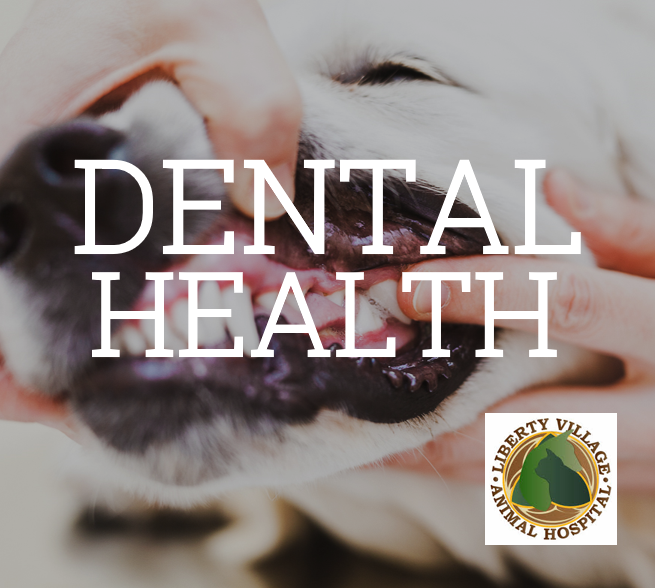It’s more than just cosmetics
You may have seen our recent dental care promotion (book and complete a dental assessment and completion before February 15, 2020 and you could win tickets to the Raptors vs Bucks game on Feb 25th!) and thought, “Yeah, I should really try brushing my pet’s teeth more often – but it’s always such a pain in the neck! And it’s not like my pet eats sugar all the time – I mean, can his/her teeth really be that big of a deal?”
Yes.
The medical community has known for decades that oral health is crucial to good overall health for humans – after all, “…the mouth is the entry point to your digestive and respiratory tracts…”, and that means bacteria.
There’s increasing research demonstrating that the same is true for animals, and our cats and dogs are no exception. As the AAHA pointed out in their 2019 guide: “Compromised dental health can affect a pet’s overall health, longevity, quality of life, and interaction with its owner without exhibiting obvious clinical signs of disease.”
The effects of bad oral health on your dog
When your dog has bad teeth and gums, it can affect them in all kinds of ways.
- Pain: Chronic (from low-grade toothaches and periodontal inflammation) and acute (from a broken tooth or jaw).
- Inflammation: Starting with the gums, but over time this can lead to inflammation of all mouth tissues – which of course leads back to #1.
- Kidney, liver and heart disease: Bad bacteria that gets stuck in your dog’s mouth and gum tissues can enter your dog’s bloodstream – which in turn spreads to other organs. As with humans, this can lead to organ failure and congestive heart failure.
- Weight loss: We know that older dogs need to maintain muscle mass in order to lead healthy, active lives even when they’re officially ‘senior’ dogs. But if their mouth hurts, it’s hard for them to eat properly – and that can lead to weight loss that can be problematic.
Prevention is the best cure
Again, as with humans, the best way to ensure great dental health for your pet is to make it a part of your pet’s overall healthcare plan right from the beginning. When you brush irregularly, at random intervals, pets protest vigorously. Brush regularly, on the other hand, from the very first day your pet comes home with you and we promise it’ll get easier.
How to ensure dental health at home:
- Brush your dog’s teeth a minimum of 4 times a week (daily if you can manage it!). It’s best to use veterinary toothpaste, since the research isn’t clear about the safety of fluoride for dogs and cats. (And don’t use ‘natural’ toothpastes that contain xylitol – it’s highly toxic to dogs.)
- Provide a variety of dental-focused chew toys
- Try specialized dental treats that encourage your pet to chew vigorously while providing a brushing-like sensation. (Not all dental treats are equally effective, so you should ask your vet for recommendations.)
Does your dog really need professional dental exams and cleaning?
Yes – but don’t panic.
Proper, thorough dental exams and cleaning for dogs typically require a general anaesthetic, specialized equipment, and the attention of a qualified veterinarian – it’s a big deal.
So we aren’t suggesting that your dog has to have a full dental treatment every six months like people do. But we do recommend the following:
- Ensure your vet checks your dog’s teeth at every puppy appointment in their first year (when you’re typically already seeing the vet every few weeks to get your puppy’s shots and spay/neuter procedures)
- Ensure your vet checks your dog’s teeth at every annual exam
- A full assessment/exam/cleaning procedure at around 3 years old
Speak to your vet about the right dental exam schedule for your dog after 3 years old. Smaller dogs or specialized may require more frequent exams due to tooth crowding or genetic issues; younger dogs whose teeth are being brushed regularly can typically go longer between cleanings than older dogs who resist brushing; senior dogs may need options that do not include anaesthesia (which can be dangerous for elderly animals).
Want to learn more? Don’t hesitate to get in touch – we’d be happy to help you figure out the best way to keep your dog’s mouth healthy for life!

